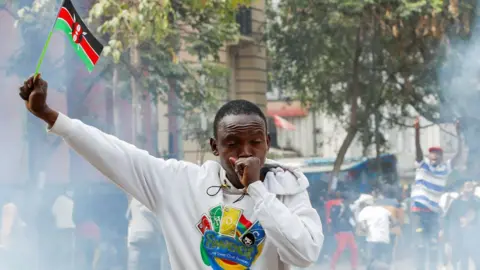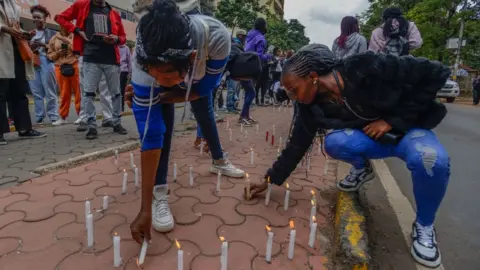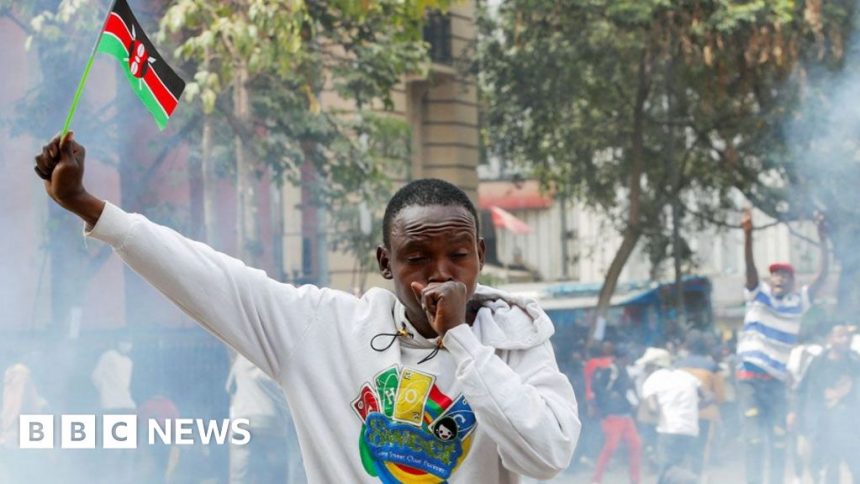Tear gas fired at anti-government protesters in Kenya
 Reuters
ReutersKenyan police have fired tear in the capital, Nairobi, to disperse anti-government protests.
In the city centre many businesses have remained closed. Demonstrators have also taken to the streets of other cities including Mombasa and Kisumu.
Human rights groups say since the protests against a controversial finance bill began two weeks ago 39 people have been killed by security forces.
President William Ruto has since dropped the proposed tax increases – but the demonstrations have morphed into calls for him to resign and anger over police brutality.
Cars can be seen burning amid chaotic scenes in Mombasa as protesters clash with police.
The clashes in Nairobi have forced magistrates to put off hearings at a court in the city, the Daily Nation newspaper report.
- Kenya to borrow more after new taxes withdrawn – president
- Was there a massacre after Kenya’s anti-tax protests?
- Protesters set fire to Kenya’s parliament – but also saved two MPs
The state-funded Kenya National Commission on Human Rights (KNCHR) says most protesters were killed last Tuesday when MPs voted to pass the bill.
Seventeen people had died in Nairobi and 22 others killed in other parts of the country, it said in a statement on Monday evening.
There had also been 361 injuries, 32 cases of “enforced or involuntary disappearances” and 627 arrests, it said.
On Sunday, the police put the death toll at 19. Earlier, Amnesty International had said 24 protesters had died.
 AFP
AFPKNCHR condemned “in the strongest terms possible the unwarranted violence and force that was inflicted on protesters, medical personnel, lawyers, journalists and on safe spaces such as churches medical emergency centres and ambulances”.
It said the force used against the protesters “was excessive and disproportionate”.
President Ruto said the police had “done their best they could” while speaking at a roundtable interview with journalists on Sunday.
He added that “if there were any excesses” they would be addressed through “existing mechanisms”.
You may also be interested in:
 Getty Images/BBC
Getty Images/BBCGo to BBCAfrica.com for more news from the African continent.
Follow us on Twitter @BBCAfrica, on Facebook at BBC Africa or on Instagram at bbcafrica







